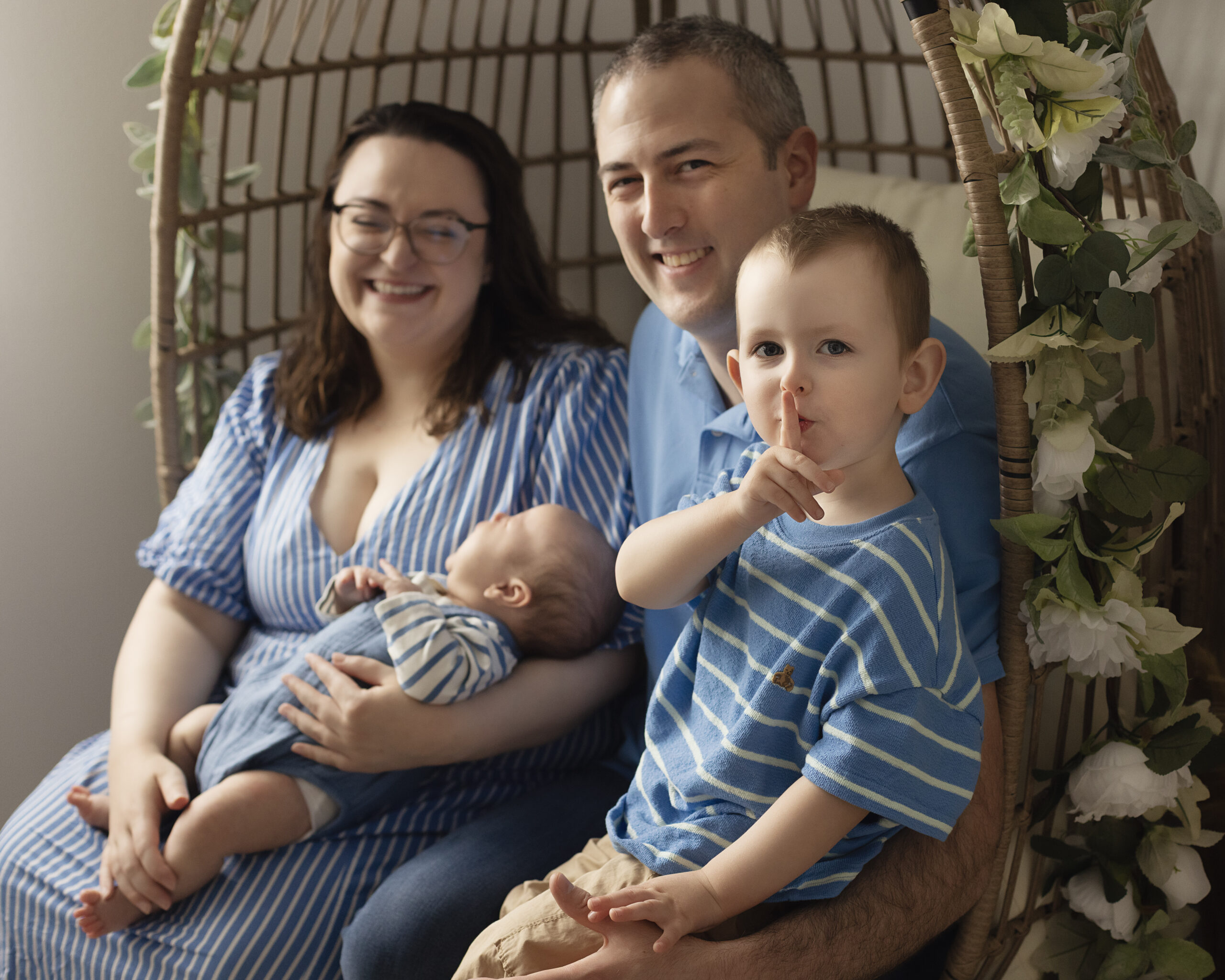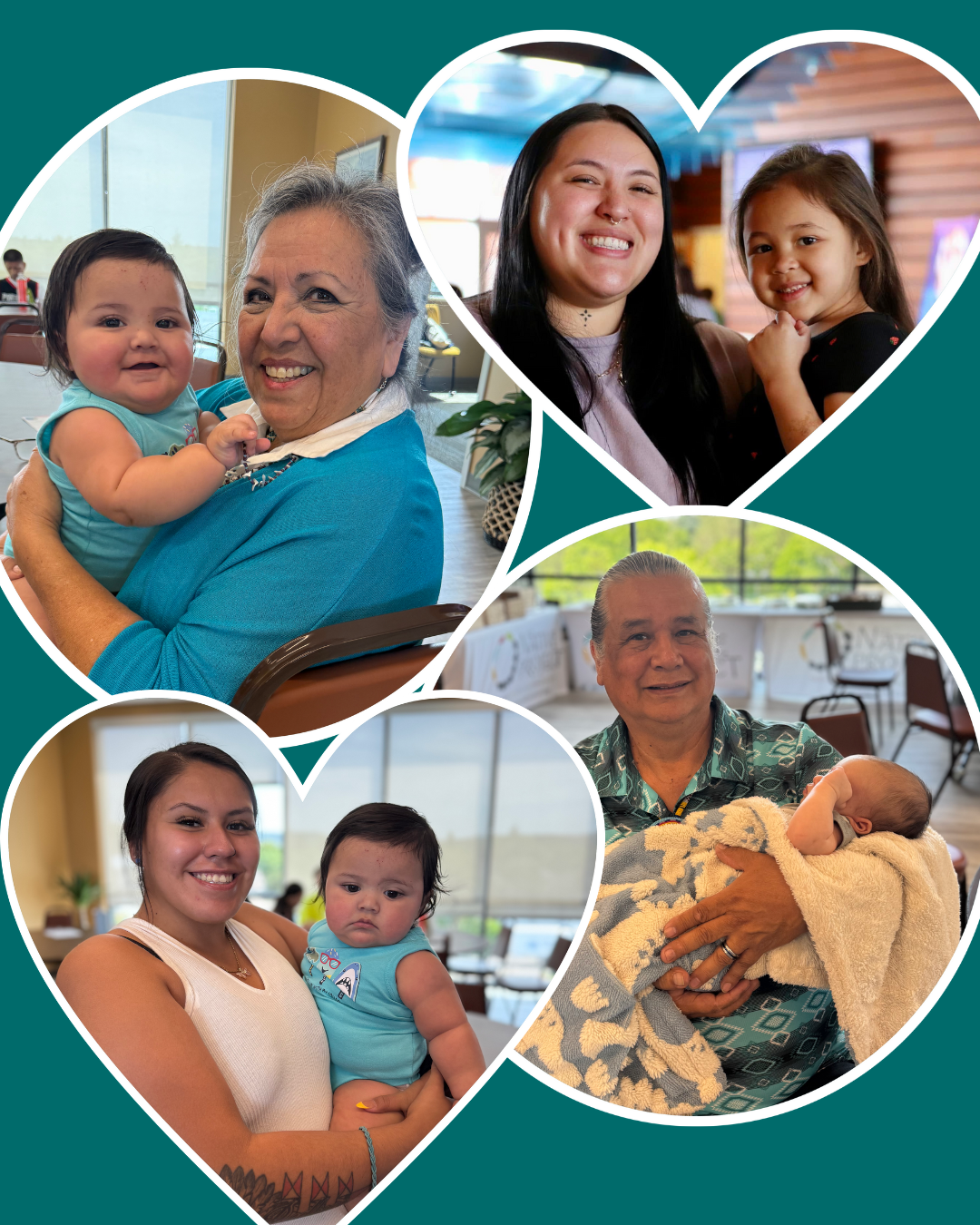Quarterly Newsletter – 2025 Edition 3 – August
August 28, 2025 | Newsletter
Upcoming Delegates Meeting – September 3, 2025
Hosted at Lummi Nation – see invite sent from info@aihc-wa.com for more details on how to get there and parking.
Upcoming Events
- National Indigenous and Native American WIC Coalition Conference – September 16 – 18, 2025 at the Clearwater Resort in Suquamish. Register here.
- Tribal Behavioral Health Crisis Academy – September 22 – 24, 2025 at Port Gamble S’Klallam Tribe. Register your crisis team here.
- Centennial Accord – October 20 – 22, 2025 at the Cowlitz Indian Tribe’s ilani Resort. More information to come.
- Washington State Public Health Association 2025 Annual Conference – October 21 – 23, 2025, at the Yakima Convention Center. Register here.
- Governor’s Indian Health Advisory Council (GIHAC) 2025 End of Year Meeting – December 2, 2025, at the Jamestown S’Klallam Tribe’s Red Cedar Hall. More info to come.
- AIHC Annual Showcase – December 2, 2025, at the Jamestown S’Klallam Tribe’s Red Cedar Hall. More info to come.
- Annual Delegate Meeting – December 3, 2025, at the Jamestown S’Klallam Tribe’s Red Cedar Hall. More info to come.
- Stay up to date on all upcoming events – Check out the calendar on our website for upcoming meetings and events: https://aihc-wa.com/calendar

Please join us in welcoming Jessica McKee back from maternity leave!
Faith Turk and Jessica McKee are transitioning Foundational Public Health and the Current Issues (Thurs AM) back to Jessica now that she is back from maternity leave. This means that they’ll be working together on these meetings over the next few months to make it a smooth transition. Feel free to reach out to Jessica for anything emergency preparedness or foundational public health.
From the Executive Director
Summer has gone by quickly and it is time for our Third Quarter Delegates meeting already. We are excited to meet up at the Lummi Nation and hope some of you can join us in person. On top of all the other work reported in this newsletter, we have also:
- Held the first two out of three Governor’s Indian Advisory Council Meetings for 2025 – establishing the Native Hub Committee to work on implementation planning
- Completed consultation on the Tribal FPHS funds, manage to keep the same funding levels despite cuts to DOH and Local Health Jurisdiction funding
I am participating in interviews with GOIA for the Tribal Leaders Social Services Council support staff. Their official title will be: GOIA Health and Social Services Policy and Legislative Affairs Director. Hopefully we will have more help coordinating the health and social services work very soon.
Tribal Public Health
Tribal Food Safety Resources Update
Written by Heather Erb, Faith Turk, and Jessica McKee
The American Indian Health Commission has been working with Tribes in the development of model Tribal food safety codes, regulations, and guides. These resources provide the processes and actions for a Tribe to exercise their sovereign authority to protect the health and safety of their community members. Tribes may choose to incorporate various sections of the model Tribal laws and regulations into existing Tribal policies or codes.
Available for use now by Tribes is the Model Temporary Food Establishment Guide and accompanying documents. The guide may be used by Tribes when setting up temporary food establishments for a single event. Please email info@aihc-wa.com for questions or additional information.
AIHC Model Temporary Food Guidance 6-25-25
AIHC Model Tribal Temp Food Application 6-24-25
AIHC Model Tribal Temp Food Checklist 6-24-25
AIHC Model Tribal Temp Food Checklist 6-24-25
Maternal and Family Health
Written by Cindy Gamble and JanMarie Ward
AIHC recently completed 2 Maternal and Infant Health (MIH) projects that are documented in 2 significant reports. The 2 projects are:
- Community Conversations About the Health of Native Pregnant, Birthing and Postpartum Women and People (Community Conversations Project)
- Maternal Child Health Block Grant (MCHBG) Needs Assessment (MICAH Project)
Community Conversations Project:
- Approach: visit Tribal and Urban Indian communities and leaders to talk about the issues, concerns and needs of Native pregnant, birthing and postpartum people.
- First Phase: AIHC MIH consultants held 5 community and 5 leadership virtual gatherings. The results of these gatherings were published as an American Indian/Alaska Native Addendum in the 2023 Maternal Mortality Review Panel Report to the Legislature. (2023 American Indian/Alaska Native Addendum)
- Second phase: Community Conversations were held in community in 6 Tribal and Urban Indian communities. The results of this phase are documented as the AI/AN Addendum in the 2025 Maternal Mortality Review Panel Report to the Legislature which will be released in October 2025; the link to the report will be shared on the AIHC website.
- Conclusions: The high disparities in Maternal Mortality experienced by AI/AN people is a critical concern and remains a high priority for AIHC. Our hope to obtain funding to continue the Community Conversations Project and visits to the other Tribes and Urban Indian communities in our state.
MICAH Project:
- Part of the DOH’s Maternal Child Health Block Grant (MCHBG) needs assessment
- For the state of WA to continue to receive the federal block grant funding they must conduct a needs assessment every 5 years to ensure that the block grant funding is being utilized to meet the greatest needs.
- The MCHBG needs assessment gathers information to assess Maternal, Infant, Child, and Adolescent Health (MICAH); this includes children and adolescents with special health care needs. In addition, we added a question about the impacts of the Opioid Epidemic on the 5 population domains listed above.
- Due to short timeline, we held 4 regional gatherings, 1 individual Tribal gathering and 7 small group virtual gatherings, with a total of 110 participants and over 1500 individual responses.
- Findings are published in the 2025 American Indian and Alaska Native Maternal, Infant, Child, Adolescent Health (MICAH) Statewide Assessment, which can found on our website here.
- We do recommend continuation funding to proceed with data collection of the MICAH Project.

We hope you find time to read both Community Conversation Project and the MICAH Project reports. If you would like to schedule a presentation to your community and/or leadership, please contact Cindy Gamble or JanMarie Ward.
Tribal Behavioral Health
Questions about kratom and 7-OH?
Written by LisaRey Thomas
AIHC is receiving inquiries about kratom and 7-OH from concerned community members and leaders. We are committed to providing information that is accurate, actionable, and compassionate. The UW Addictions, Drug & Alcohol Institute (ADAI) and the Center for Community-Engaged Education, Epidemiology, and Research (CEDEER) recently released this 7-page research guide “Kratom and 7-OH: What do we know about use, safety, and overdose risk”.
You can also listen to an interview done by KUOW with Dr. Caleb Banta-Green on August 13, 2025 about kratom and 7-OH here.
The Tribal Toolkit for Navigating Federal Grant Terminations
Written by LisaRey Thomas
Recently the Coalition for Tribal Sovereignty released the Tribal Toolkit for Navigating Federal Grant Terminations which is a 42 page toolkit providing guidance to sovereign nations navigating federal grant uncertainties. From the introduction:
“The Tribal Toolkit for Navigating Federal Grant Terminations was developed by the Coalition for Tribal Sovereignty (CTS) to assist Tribal Nations and Tribal organizations in navigating federal grants in an uncertain funding climate. This toolkit is equipped with five handouts to help Tribal Nations and Tribal organizations navigate specific areas of the grant management, termination, appeal, and closeout process accompanied by associated template materials for appealing and related advocacy.
The handouts contain links to the relevant template materials. Each template has an instruction sheet for use. Please review the instruction sheets first to help tailor and optimize the materials effectively for your individual needs. This information is intended only for informational purposes and does not constitute legal advice. All Tribal Nations and Tribal organizations who use this toolkit are encouraged to consult an attorney for specific guidance.”
The toolkit can be found here.
Government-to-Government
Changes in State Agency Administration
Written by Vicki Lowe
Governor Ferguson appointed Dennis Worsham Secretary of Health, for Department of Health in June. Sec. Worsham is a Washington Native and has worked for more than 30 years in state and local public health. He started his position mid-July and the AIHC Executive Committee and Executive Director met with him on August 18th to share high level priorities. Among them was the importance of following RCW 43.376.020(2) Designate a tribal liaison who reports directly to the head of the state agency.
The new Director of Health Care Authority started August 18th, we are working on a meeting with him. However, through conversations with Acting Director MaryAnne Lindeblad, Aren Sparck, Administrator of Tribal Affairs, became a member of the Executive Leadership Team at HCA, effective August 1.
Gov. Ferguson appointed Angela Ramirez as the new Secretary of Department of Social and Health Services. She was formerly chief of staff at the US Department of Health and Human Services.
AIHC will be providing our Tribal Sovereignty and Indian Health Delivery System training as soon as it can be arranged.
Access to Healthcare Revenue
Improving Information Sharing Between Tribes and Hospitals
Written by Heather Erb
AIHC has received reports from several Tribes over the years of significant barriers in receiving critical information from hospitals regarding the status of their community members experiencing a behavioral health crisis. On more than one occasion, lack of information has resulted in serious escalation of an individual’s crisis, including death. These events led to the passage of HB 6259 which clarifies that certain information can be shared with Indian health care providers and Tribal law enforcement.
AIHC has been working with the Washington State Hospital Association (WSHA) to educate WSHA on the severe impacts of withholding information from Tribes. WSHA has agreed to provide guidance to hospitals about when they can share information with Indian health care providers and Tribal law enforcement officers. AIHC is the process of reviewing their draft guidance and will be seeking Tribal input.
If your Tribe has experienced any issues in gaining access to information about your community members experiencing a behavioral health crisis, please reach out to Vicki Lowe at vicki.lowe@aihc-wa.com.
Legislation
Upcoming Legislative Priorities for 2026
From the WTOF Taskforce Summit in May, we have identified the following legislative priorities for 2026:
- Continued funding for the WTOF Taskforce
- Continuum of Care – Expand Tribally or UIHO-operated behavioral health facilities and housing
- Public Safety and the Justice System – Annual Tribal Law Enforcement Conference in coordination with WA Department of the Military, Attorney General’s Office and AIHC
- Housing and Wrap Around Services – Increase eviction prevention funding and dedicate state resources to rental arrears, court-related eviction forgiveness, and application fee coverage Tribal set aside.
- Family and Community Services – Leverage federal grants and state funds for up to 30 Tribal liaisonswithin public schools across the state along with regional supervision for Tribal liaisons to be under the supervision of a Tribal liaison.
- Community Response – Organize a Gathering of Storytellers to help reduce and eliminate stigma and promote cultural approaches to prevention and treatment.
Additional legislative priorities can be found in the full report to the legislator. We will also review other potential 2026 legislative priorities during the Delegate Meeting on Wednesday, September 3, 2025.
